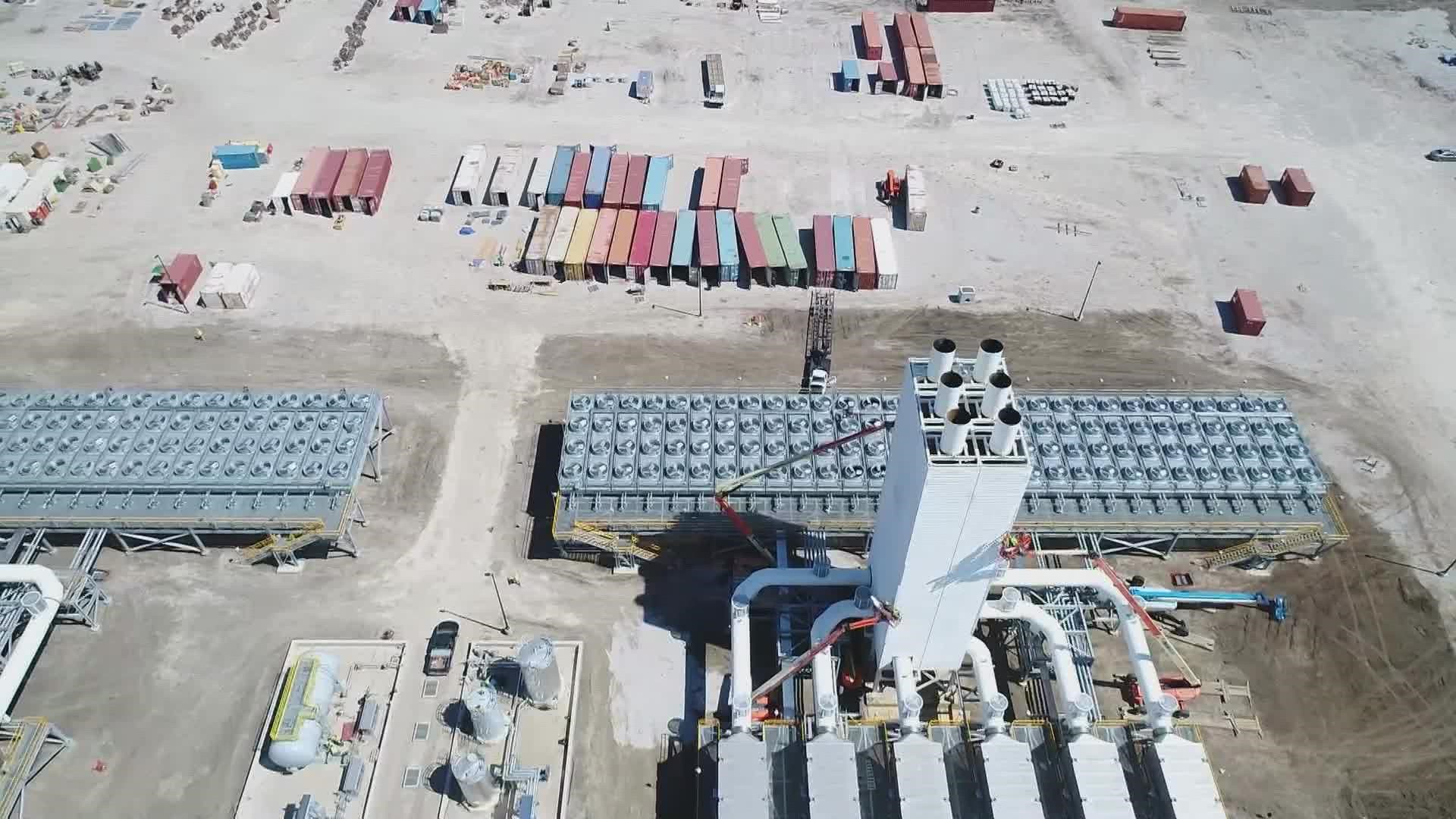DENTON, Texas —
At the height of last February’s winter storm, the City of Denton’s power plant ran at full capacity, burning natural gas to make electricity.
Then officials claim the plant’s supplier called and notified them that their natural gas supply would be cut off.
No explanation was offered, Denton officials say.
"When I was informed by my folks... my jaw dropped," Denton plant manager Antonio Puente said in an April 2021 interview. "The next thing that happened that we didn't anticipate was that many components of this facility began to freeze."
Puente says the loss of fuel caused the plant to shut down, resulting in big financial losses for the city of Denton. Once fuel was restored, he said it took about 24 hours to get some of the plant’s engines back up and running.


A year ago, WFAA reached out to the plant’s natural gas supplier, Enterprise Products of Houston, to get to the bottom of why the Denton plant's supply was cut off. The company did not respond at that time.
Now, however, a company spokesman disputes Puente’s story. He says the gas supplier never cut off the plant’s natural gas.
“The Enterprise pipeline maintained sufficient pressure to supply DME (Denton Municipal Electric) throughout the event,” said Rick Rainey, vice president of public relations for Enterprise Products.
He said Enterprise officials were in regular contact with Denton plant officials during the week of the winter storm. He also said a company representative advised a Denton plant official to keep their engines running during the winter storm.
“A review of our system operating conditions confirmed that gas was available at the delivery point to the Denton Energy Center at all times during the winter storm,” Rainey wrote. “Furthermore, a review of control center logs showed no evidence that DEC (Denton Energy Center) experienced or reported a problem with Enterprise’s service during the winter storm.”
What happened at Denton’s power plant is really an issue for all Texans.
It’s one of 13 “black start” power plants.

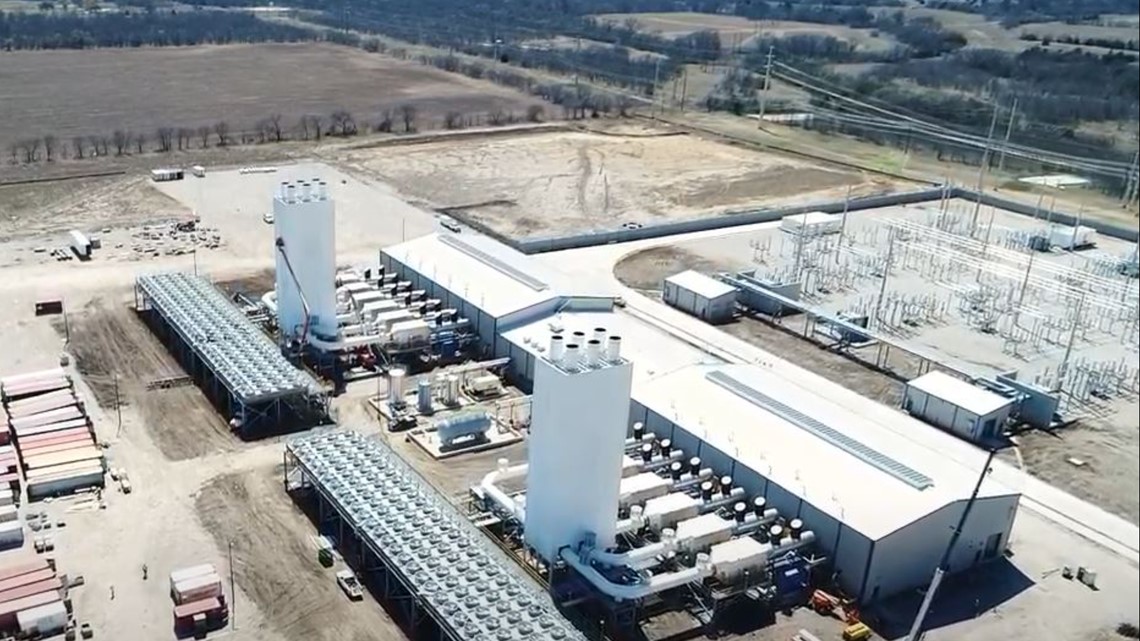
If the state’s power grid fails – as it almost did last winter – black start plants are critical to jumpstarting the grid on again, ensuring millions get power back.
A few weeks ago, WFAA talked to Puente again. He still doesn’t know why the city’s power plant lost its gas supply. Puente says the city has hired an engineering firm to help it come up with a solution in the event something similar happens again.
Said Puente: "Until we have some alternate fuel source or some other mechanism to keep our plant operational, it will be in the back of my mind, the question of, 'Can it happen again?'"
In such a “he said, she said” scenario, it’s difficult – if not outright impossible – to know what really happened between Denton and Enterprise. No government regulator is responsible for getting the answers here.
The Texas Railroad Commission, which regulates certain aspects of the oil and gas industry in the state, takes the position that this type of situation does not require oversight. Commissioners claim it’s a contractual matter between two private parties, who can plan ahead for disasters.
"The Railroad Commission has no jurisdiction over the price of natural gas nor do we have jurisdiction over the use of natural gas to generate electricity," Railroad Commission Chairman Wayne Christian said at a November meeting.

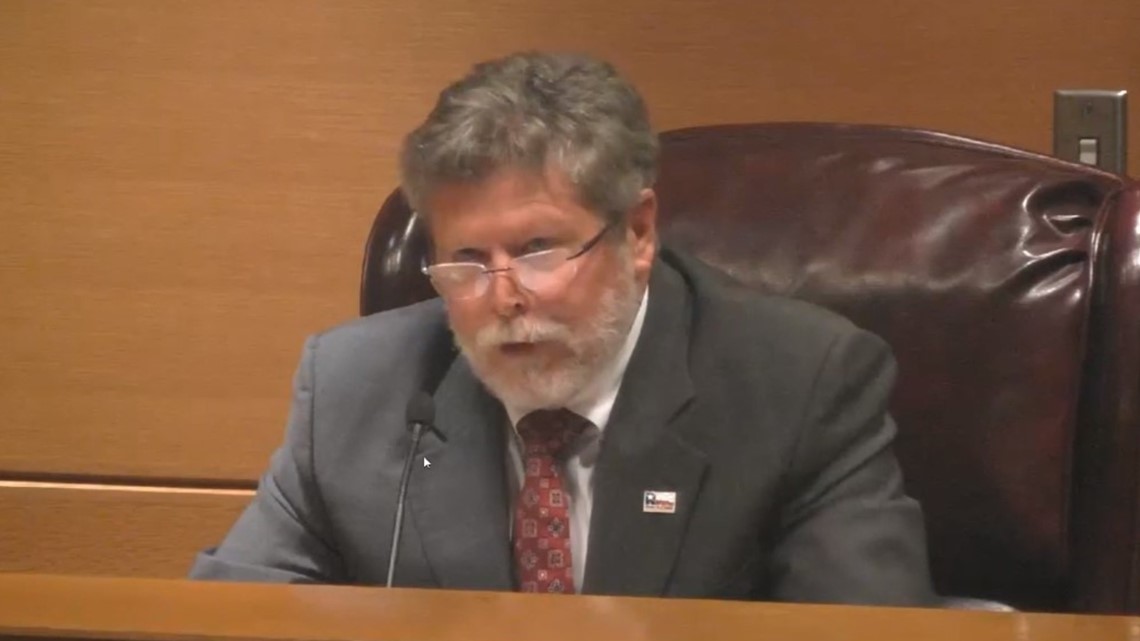
Here's how Commissioner Jim Wright described it at that same meeting: "Chick-fil-A is not required to be open on Sunday. That is a business decision made by the owner. I can tell you with certainty, if you want to eat a Chick-fil-A sandwich on Sunday, you're going to need to buy it in advance. The same is true for natural gas."
Others say power plants can’t necessarily protect themselves solely by private contract.
"As much as I like a Chick-fil-A sandwich, I would not put it in the category of providing essential services for health and human needs, as the natural gas industry does," said former power grid independent market monitor Beth Garza.


Garza says that, in many cases, power plants can’t choose who supplies their gas.
Denton's plant is one such example.
"They're beholden to a monopoly provider of an essential service," Garza said. "To pretend that there's a contractual relationship, where both parties are on even footing in that situation is false, it's a fallacy."
'Cop on the beat' needed for natural gas suppliers?
Nearly half the state’s power plants run on natural gas.
All of those power plants, and all buyers and sellers of electricity, are overseen by what’s called an independent market monitor.
Brad Jones, the interim CEO of the Electric Reliability Council of Texas (or ERCOT) that manages the electricity grid for most of the state, wants to create a similar independent market monitor over the natural gas suppliers that serve power plants.

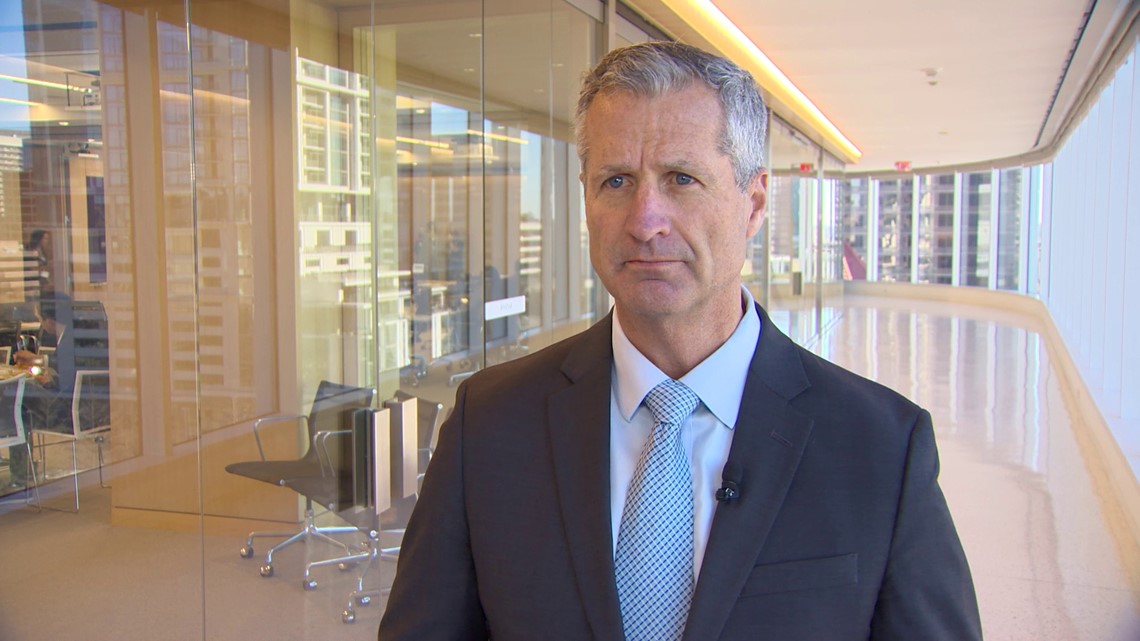
"If you have a cop on the beat, everyone feels more secure and comfortable that their rights will be protected," Jones said.
A recent dispute between one of the largest electricity providers in the U.S. and one of the largest gas pipelines is a case study.
In January, as cold weather was approaching, records show that the Dallas-based pipeline Energy Transfer threatened to cut off gas to five of Luminant Energy’s natural gas-fired power plants in a fee dispute related to last February’s winter storm.
For two of those plants, Energy Transfer was the sole pipeline serving the facility.
After Luminant filed a complaint with the Texas Railroad Commission, Energy Transfer pull back on its threat. The company wrote in a Jan. 19 letter to the commission that it "has and will continue to provide daily sales service."
"It takes something like an independent market monitor to be able to look at this information without having a stake in the issue, [to] look at the information and make a decision who was in the right and who was in the wrong,” Jones said.
Oil and gas industry officials argue that they are different than electrical providers, and don’t need similar government oversight.
“In oil and gas, we are very highly regulated for safety and environmental reasons, but not for market production reasons," Todd Stapes, president of the Texas Oil and Gas Association, said at a recent Dallas forum. "The reason why is because there are a variety of buyers, all of which use it for different purposes."

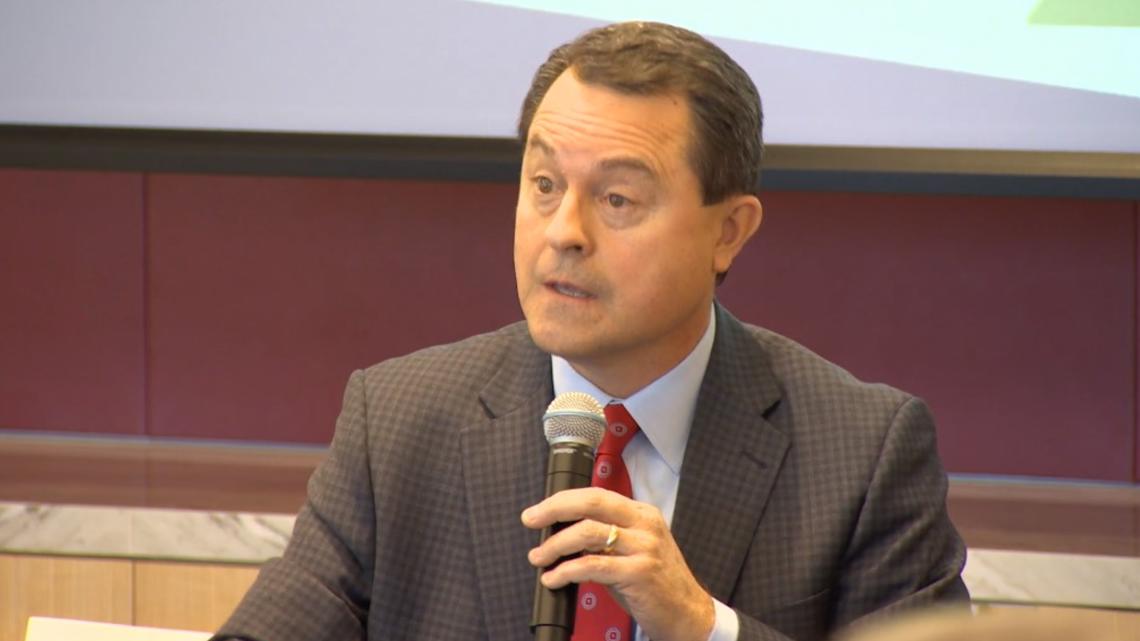
In a statement to WFAA, Staples offered the following: "Lack of information and lack of natural gas is not a problem. Lack of pre-planning and pre-purchasing on the part of the power generators is a problem."
Oil and gas industry says more regulation not needed
Instead of tougher regulations for the natural gas industry, the industry’s regulator, the Texas Railroad Commission, asked lawmakers to require power plants to negotiate better contracts with gas suppliers.
Christi Craddick, a Commission member, has publicly said that power plants should have been required to have what are called "firm contracts" for natural gas supply. Firm contracts typically require a power plant to pay for natural gas even when they don't use it.
But Jones and other experts say "firm contracts" do not make economic sense for all natural-gas fired plants, especially for what are known as "peaker plants."
"Peaker plants" are plants that typically only operate during the hottest or coldest periods, when demand for electricity spikes and more power is needed quickly.
Some of those power plants run only a few days a year. Denton, for example, operates the equivalent of about one out of every five days.
Requiring "firm contracts" for power plants could lead to the closure of some "peaker plants," which would be bad for the grid’s reliability, Jones said.
"There must be something that we develop that makes sure that the electric generation gets the [fuel] supplies they need in a cold weather event because that is important to preserve human life in our state, and we shouldn't take chances with that," Jones said.
Jones said ERCOT also needs timely information about natural gas supplies to help keep the lights on.
Here’s an example of why: During the storm in early February, ERCOT learned at the last minute that a large power plant would be forced to shut down. The plant’s natural gas supplier had decided to do maintenance on their pipeline, which would have left the plant without gas to operate. Seeing this, ERCOT officials called the supplier and convinced them to delay the planned maintenance.
Jones said this instance shows the critical nature of ERCOT having information that indicates when natural gas supply could imperil the grid’s reliability.
"We shouldn’t be in that situation," Jones said. "We should know days in advance."
Power plants already have to inform ERCOT ahead of time when they do scheduled maintenance, but there's no such requirement for natural gas companies supplying fuel to gas-fired plants.
To solve the problem, Jones wants to create a "gas desk" that would be empowered to gather information from suppliers. He’s hoping suppliers will begin providing ERCOT information voluntarily. But he said it might require lawmakers to make it mandatory.
In a statement, Staples said he opposed both an independent market monitor overseeing fuel suppliers to power plants, and a gas desk, and called it "shocking" that ERCOT would suggest it.
He said ERCOT needs to focus on ensuring that power generators contract for "supply, storage and transmission (of natural gas) during peak periods" to ensure they will have access to the fuel they need to operate at all times.
Critics say that if the natural gas industry continues to resist oversight and can’t be counted on to supply fuel to make electricity in extreme weather conditions, it may be time to rely on a new fuel source.
"If the natural gas system wants to continue to operate as they have – maybe they'll be there when it's cold, and maybe they won't – then I think on the electricity side, we need to make different choices about our fuel sources,” Garza said.
Got a news tip? Email investigates@wfaa.com.

